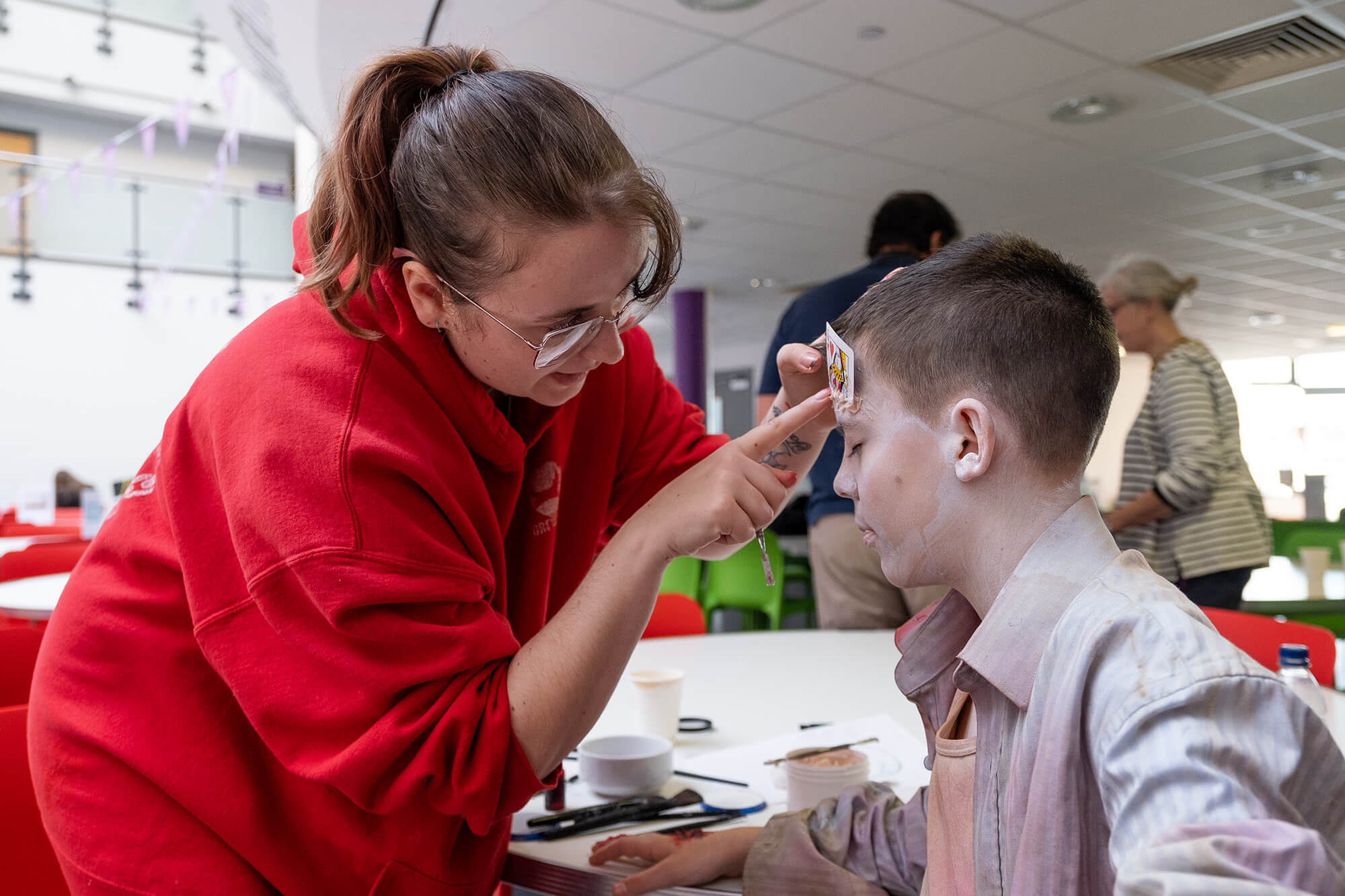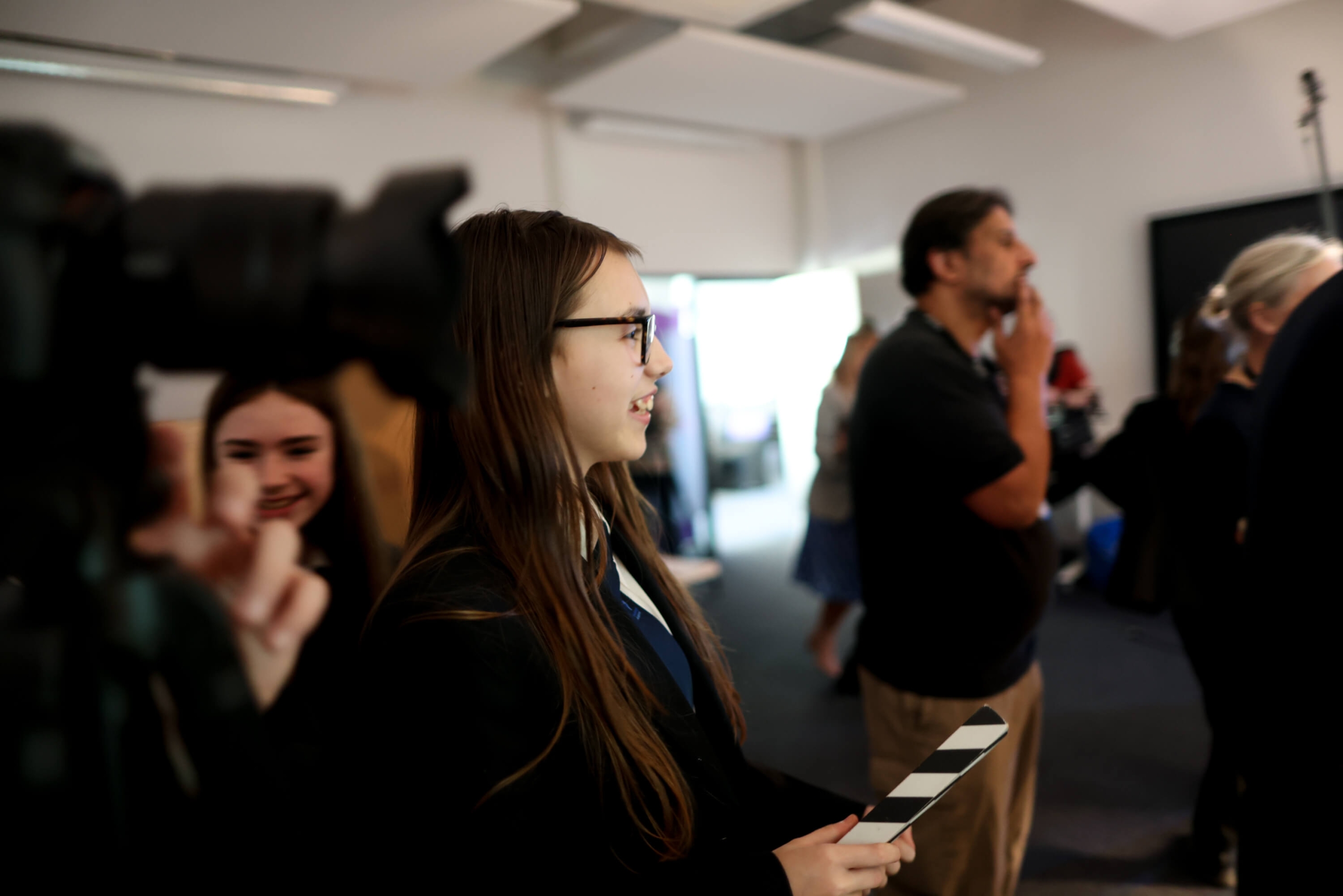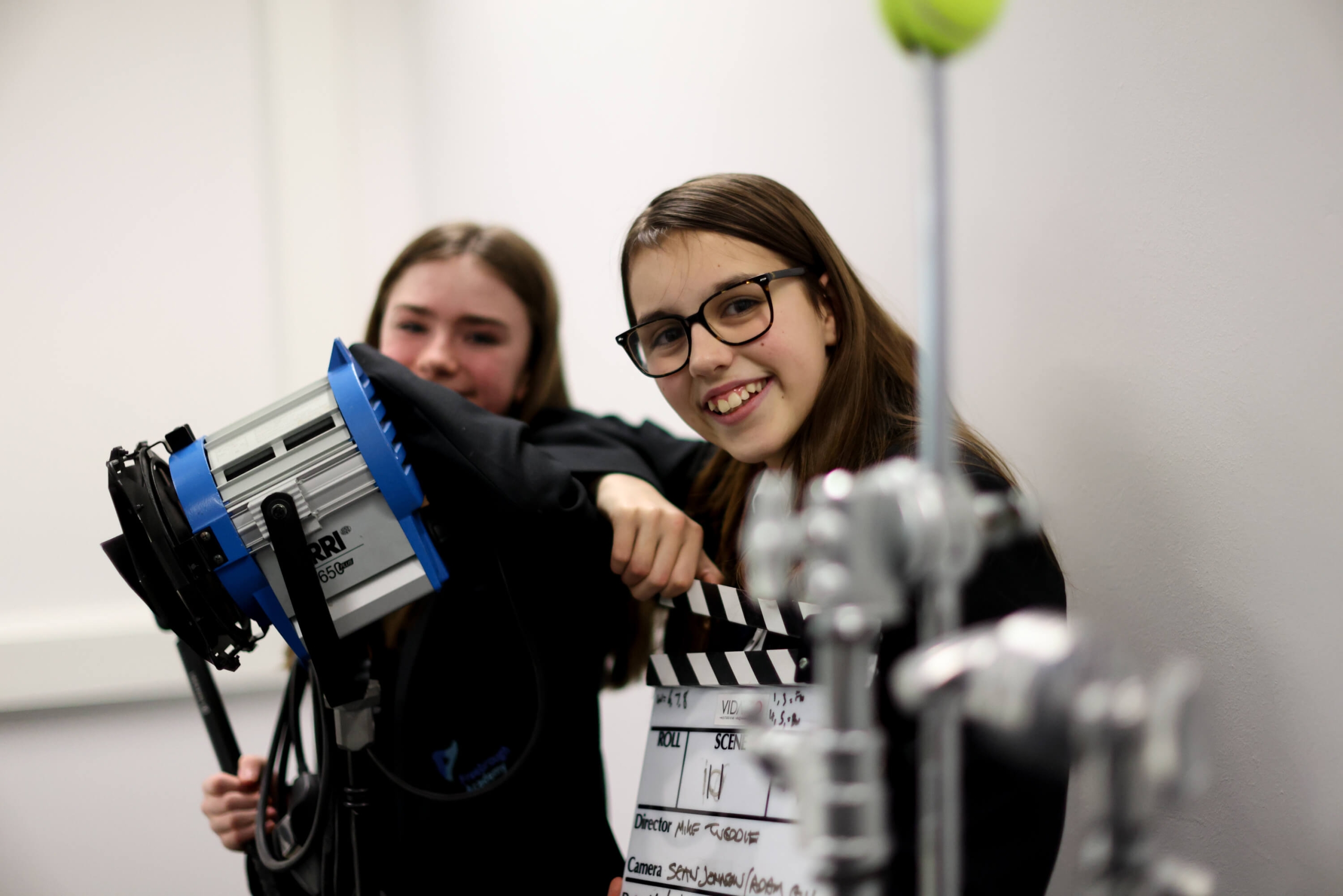BLAST FURNACE PROJECTS
Dedicated to creating career paths for children and young people into Film and TV production
“The Tees Valley can be a pioneer in using creative learning to improve the employment chances of our young people. Where once our region was famed for building ships and bridges, we can now be known around the globe for making world-class television and films.“
Ishy Din – CEO
WHO WE ARE
WHO WE ARE
Award-winning writer Ishy Din was born and brought up on Teesside, leaving school in 1985. He has witnessed first-hand the seismic social and economic repercussions of de-industrialisation. Over many years he worked numerous jobs, before transitioning into a playwright and screenwriter. Since then, he has lectured on creative writing and creativity at numerous organisations including schools, colleges and universities. He has helped design courses for FE organisations and advises on best practise. Ishy has led multiple school-based creativity projects and taught on creative writing residential.
As a writer Ishy has worked for many of the major broadcasters, including the BBC, CH4 and Netflix, and has several original TV series proposals in development. For theatre he is under commission from the National Theatre and the RSC to write major plays. Ishy has a number of BFI funded feature film projects at various stages of development and his Teesside based production company Blast Furnace Productions is developing its first short film, set in Redcar.
Ishy is a former Trustee on the board of ARC Stockton and is currently a Trustee of LIVE Theatre in Newcastle.
ADVISORY BOARD
Anna Disley: Executive Director New Writing North
Alison Gwyn: Chief Executive of North East Screen
Diana Jervis-Read: Film Maker/TV Producer/Arts Administrator
Sofie Mason: Fundraiser, Arts & Creative Industries
Annabel Turpin: Executive and Artistic Director ARC Stockton
WHAT WE DO
WHAT WE DO
THE LATITUDE PROJECT is the first project launched by Blast Furnace Projects – an innovative and timely scheme to help school children from the Tees Valley and beyond, become articulate in Film, TV and Media content production.
WHY
WHY
The Film and Television industry makes a substantial contribution to the British economy. Last year, it generated £21.6 billion in revenue, with £5.64 billion being invested into high end Film and TV production alone. Despite the challenges presented by the COVID-19 pandemic, the UK has maintained its reputations as a global powerhouse in this industry.
The British media landscape is projected to grow exponentially, with revenues expected to reach £87.6 billion by 2025 (PwC).
Despite this, there are significant shortages in the skilled workers who are crucial in meeting the demands for British media content. If there is no intervention now, it is estimated that there will be a deficit of 40,000 skilled workers by 2025.
The Latitude Project is a direct response to the growing concern that skills shortages will inhibit the growth of our thriving British Film and Television industry. Moreover, it will serve the Tees Valley’s significant aspirations to become a place where world-class productions can be created.
HOW
HOW
HOW
From October 2022 we embedded our creative professionals into our first partner school, Freebrough Academy, to pilot The Latitude Project and successfully create an educational film as a resource for the school:
Working with school children between 11 and 14 and their teachers over a 12-week period from October 2022 to February 2023 creating a 5-minute ‘horror’ film on a STEM subject (unknown equations) that had a red-carpet premiere at The Regent Cinema Redcar attended by regional TV and Film industry representatives inspiring the children to develop an interest in the hands-on technical skills that will enable them to find future employment in film and television with the aim of rolling the scheme out across schools in the Tees Valley and beyond over the next 5 years in order to respond pragmatically to recent huge shortages in skilled technical workers in the Film and TV industries, particularly in the North.
The pilot has been a complete success and proved its worth to teachers, students and parents alike. We are now starting to roll-out the project to schools across the Tess Valley. In every school, we will create an easily accessible training tool in the form of a 5-minute film that will re-enforce current educational priorities and goals. Working closely with senior teaching leaders, we will identify what will be the most useful elements or techniques of a STEM subject for us to devise a film around.
The films aim to be fun, witty and clever, but will always at their heart be educational and an aide to learning. Each educational resource will be imagined, planned and executed collaboratively amongst the students-alongside teacher input and supervised by our embedded creative professionals. The project will not only teach new and specialised techniques, it will also promote crucial skills such as clear communication, teamwork and effective planning.
AIMS
AIMS
Within the 12 weeks of each project, creative professionals and industry experts will:
• work collaboratively with school children to create films as an educational resource to support the teaching of STEM subjects now and in future years
• explain the different technical skills required – from camera, lighting and sound to makeup, set construction, costume, and beyond
• inspire the students to imagine, plan and execute the films collaboratively with a ‘red-carpet’ premiere at a local cinema to conclude the project
• thereby embedding in these young minds the core skills of clear communication, team work and effective planning
• while primarily developing the new skills and curiosity necessary to open up fresh possibilities for future employment.
OBJECTIVES
OBJECTIVES
- To understand the full spectrum of careers open to them in Film and TV
- To become interested in pursuing a career in Film and TV
- To become confident is pursuing their creative ambitions generally
WHAT NEXT
WHAT NEXT
After the pilot project with Freebrough Academy is completed and assessed, The Latitude Project will roll out across each of the five local authorities of the Tees Valley in the next five years, with a model that can be scaled regionally and nationally.
“Your work in schools to raise awareness of the many amazing careers opening up in the sector has never been more important. The disconnect that exists between careers and curriculum advice and the massive skills shortage within the UK Screen Sector is a source of enormous frustration. The North of England is desperate to attract skilled professionals to meet the fast-expanding needs of the film and television sector.”
Graeme Thompson, Royal Television Society











